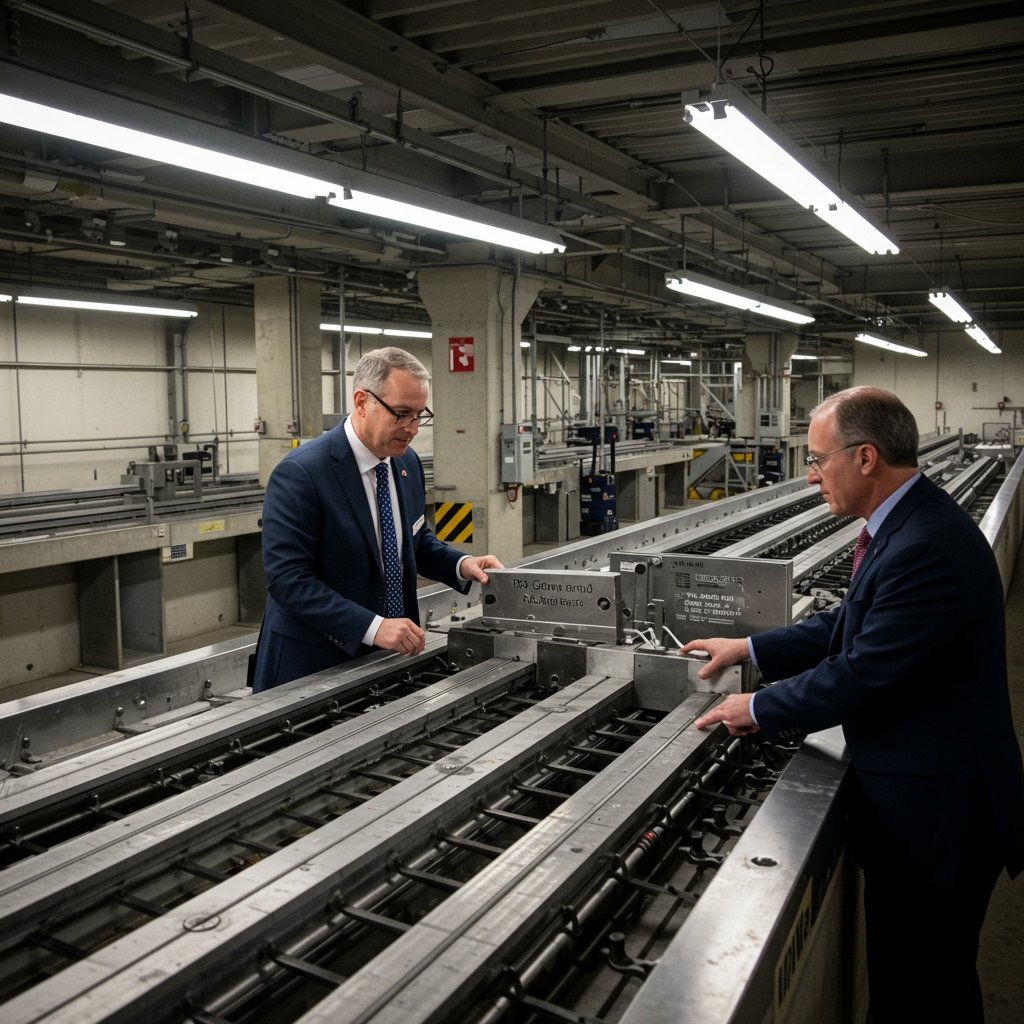Texas Legislature Greenlights Landmark Manufacturing Incentives Bill
A significant legislative step was taken in Texas on March 29, 2025, as the state Legislature gave final approval to House Bill 123. This pivotal piece of legislation is expressly designed to bolster the state’s efforts to attract advanced manufacturing companies, particularly those operating in high-technology sectors deemed critical for future economic growth and national competitiveness.
The passage of House Bill 123 culminates months of legislative debate and negotiation, underscoring a bipartisan recognition of the need to diversify the Texas economy. While the state has historically relied heavily on the energy sector, lawmakers and economic development experts have increasingly advocated for strategies to cultivate industries less susceptible to commodity price fluctuations and more aligned with global technological trends.
Details of House Bill 123: Performance-Based Incentives
At the core of House Bill 123 is the establishment of a new, comprehensive program offering performance-based tax credits and grants. Unlike traditional incentive programs that might provide upfront benefits, this structure ties incentives directly to a company’s actual performance in meeting specific investment and job creation targets. This performance-based model is intended to ensure that taxpayer dollars are directly linked to tangible economic outcomes.
To qualify for the program established under HB 123, companies must commit to a substantial investment within the state. The minimum capital investment required is set at $50 million. Furthermore, qualifying companies must also commit to creating a significant number of new, high-quality jobs, defined by the bill as high-paying positions. The minimum job creation threshold is specified as 200 high-paying jobs.
The legislation specifically targets advanced manufacturing sectors identified as strategic priorities for the state’s economic future. These key sectors include semiconductors, recognizing the critical need for domestic chip production; aerospace, building on Texas’s long-standing ties to space exploration and aviation; and biotechnology, a rapidly evolving field with significant potential for innovation and job growth. By focusing on these areas, Texas aims to position itself as a leading hub for advanced industrial activity.
Expected Impact and Gubernatorial Action
Following the Legislature’s final approval on March 29, 2025, House Bill 123 now heads to the desk of Governor Greg Abbott. Governor Abbott is widely expected to sign the bill into law next week, a move he has strongly supported. He has consistently hailed the legislation as a crucial step for diversifying the Texas economy beyond energy, emphasizing its potential to create a more resilient and dynamic economic landscape for the state.
Proponents of the bill, including economic development agencies and industry groups, have offered optimistic projections regarding the program’s potential impact. They estimate that the program established by HB 123 could attract billions in new capital investment to Texas over the coming years. This influx of private investment is anticipated to spur significant economic activity across the state.
Furthermore, these proponents project a substantial impact on the state’s labor market, estimating that the program could lead to the creation of tens of thousands of direct and indirect jobs over the next five years. Direct jobs would include those created within the manufacturing facilities themselves, while indirect and induced jobs would stem from the increased economic activity and supply chain demands generated by these new companies.
Economic Strategy and Future Outlook
The passage of House Bill 123 reflects a deliberate economic strategy by Texas policymakers to enhance the state’s competitiveness in attracting high-value industries. By offering targeted, performance-based incentives, the state seeks to differentiate itself from other states and countries vying for advanced manufacturing investment.
The focus on semiconductors, aerospace, and biotechnology aligns with national priorities and leverages existing strengths and infrastructure within Texas, such as its large workforce, established technology sectors, and strategic location. The performance-based nature of the incentives is designed to mitigate risks for taxpayers, ensuring that companies deliver on their investment and job creation promises before receiving the full benefits.
As Governor Abbott prepares to sign the bill, attention will turn to the implementation phase. State agencies will be tasked with developing the specific rules and procedures for the program, including the application process, evaluation criteria, and performance verification mechanisms. The success of the program will ultimately depend on its effective administration and the ability of the state to market itself effectively to companies in the targeted sectors.
Economists and policy analysts will closely monitor the program’s performance over the next five years to assess whether the projected billions in investment and tens of thousands of jobs materialize. The passage of HB 123 marks a significant policy shift, signaling Texas’s commitment to becoming a national leader in advanced manufacturing and securing its economic future in a rapidly changing global landscape.






